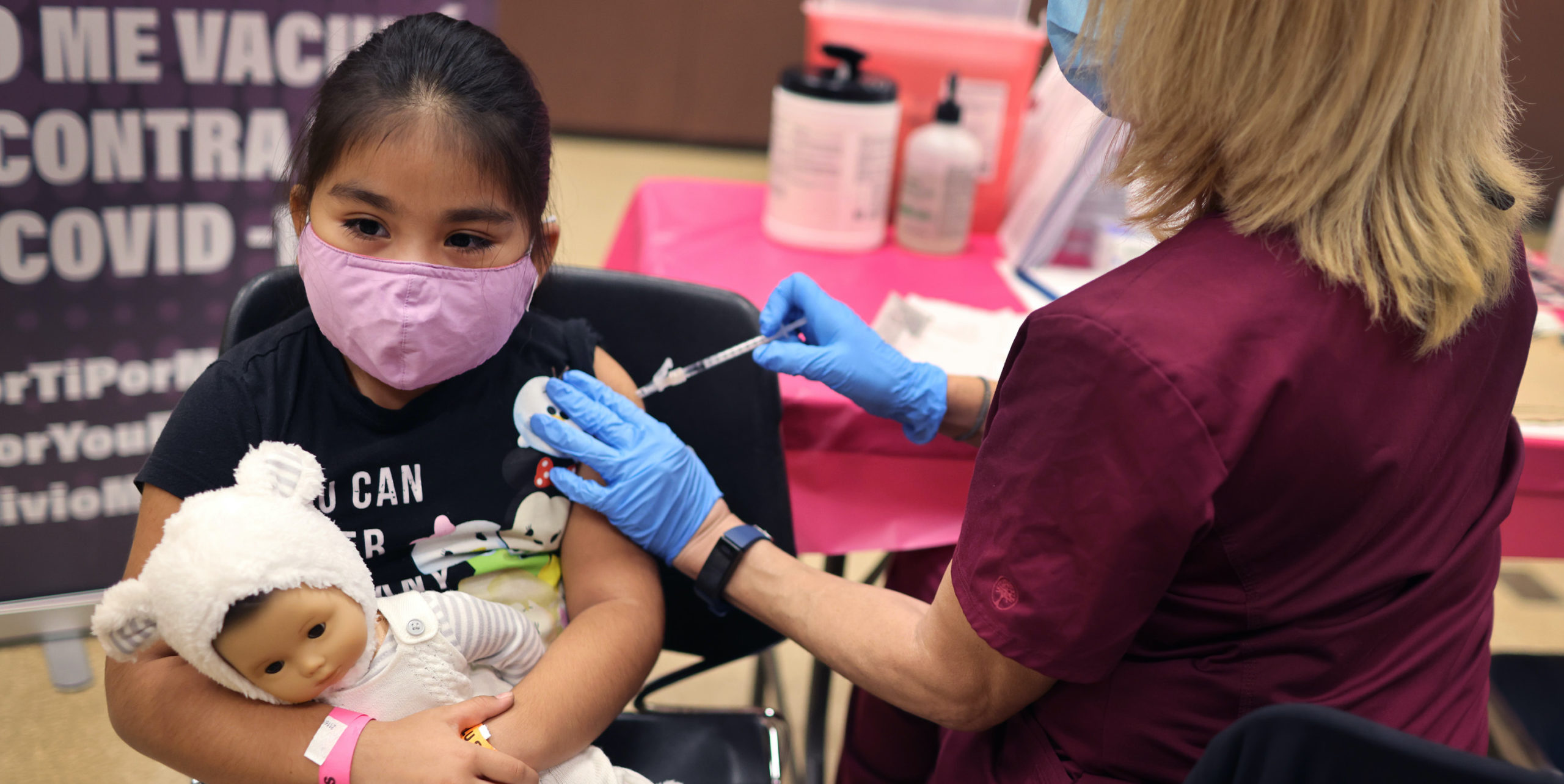A recent study of the efficacy of Covid vaccines for children in New York state provides a striking reminder of how rarely children and adolescents are hospitalised when they get Covid. The study tracked vaccinated and unvaccinated children in New York state last December and January to measure the efficacy of the Covid vaccine against infection and hospitalisation. The study did not track childhood deaths from Covid, presumably because there were so few that no meaningful comparison could be made between these groups.
During those months, a massive wave of Omicron Covid swept through New York state, despite longstanding restrictions and measures like mandated masking for children and vaccine-based segregation. During the peak in the first week of January, the study tracked over 40,000 New York state kids aged 5-11 who tested positive for the virus, with a total of 83 admitted to hospital. The numbers that week were similar for kids aged 12-17 — over 40,000 who tested positive and 141 admitted to the hospital. To provide context, there are about 3 million children in those age groups living in NY state.
What about the efficacy of the vaccine for children in preventing infection or hospitalisation? The results were dispiriting. For older kids, vaccine efficacy against being infected dropped from 76% in the first two weeks after full inoculation to 46% a month later. For the younger kids, it dropped from 65% in the first two weeks to negative efficacy: -41% a month later. In other words, the vaccinated young kids were actually more likely to be infected than unvaccinated kids a month and a half after vaccination. Against hospitalisation, the vaccines held up better over time, but since the number of hospitalisations in this age group was so small even without the vaccine, the vaccine prevented few cases.
Against this small benefit of hospitalisations avoided, it is important for parents to understand that the vaccine can produce negative side effects. In adolescent boys and young men, we know that the Pfizer and Moderna vaccines cause inflammation of the heart muscle somewhere between 1 in 2,000 to 1 in 10,000 vaccinated. There may be other side effects that are found as the vaccine is used in larger and larger numbers of children.
Vaccines routinely used in children, including the MMR and DPT vaccines, are fundamentally different from the Covid vaccine. The infectious diseases they protect against are inherently more dangerous to the health of an infected child than Covid is. And unlike the Covid vaccine, they provide long-lasting protection against both infection and severe disease, and thus contribute to herd immunity against measles, mumps, and the other diseases they prevent. The vaccines themselves have been used for decades, with the experience of billions of children testifying to their safety (though of course vaccine injuries do rarely happen).
The proper use of the Covid vaccine in children is thus to offer it so that it can be used — in consultation between parents and physicians — on children with specific health needs, rather than a blanket positive recommendation for everyone. Given the evidence that has emerged about its efficacy on kids in real world data, there is no warrant to mandate the vaccine for children or premise their participation in childhood activities (school, sports, or anything else) on vaccination status.











Join the discussion
Join like minded readers that support our journalism by becoming a paid subscriber
To join the discussion in the comments, become a paid subscriber.
Join like minded readers that support our journalism, read unlimited articles and enjoy other subscriber-only benefits.
Subscribe